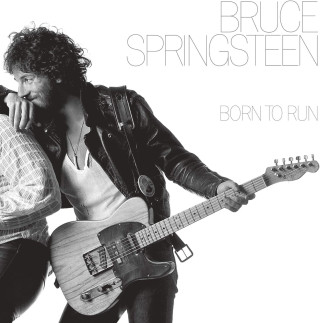As funny as they are, both Meat and Bugs do a disservice to the high seriousness of opera, which arose as a dramatic vehicle for heightening mundane emotions into the realm of the extraordinary. In its heyday opera let audiences (including Emma Bovary) revel in the dizzying catharses available when abstractions like passion, betrayal, and madness are cast into soaring arias and rococo libretti. Although Springsteen has never explicitly stated it, one senses the opera metaphor was his device for mythopoetizing everyday detail to enliven listeners stuck in 1975’s post-Nixonian languor. The emotion he pours into his novelistic images and similes—Mary’s swaying dress in “Thunder Road,” the eroticized French cream and boots sported by the aloof love interest in the exquisitely horny “She’s the One,” even the wannabe bands who “flash guitars just like switch-blades” in the dive bars the Rat rumbles past on his road to ruin—all seem concocted to jolt audiences, if only momentarily, out of lives of quiet desperation. If postmortems wrote off 1975 as a blasé year of stasis and abeyance (“If it didn’t make things much better it didn’t make them much worse,” the New York Times shrugged), BTR insisted the stuff of poetry still existed, if only the fervor were found to seize upon it—
With one significant exception. Among BTR’s eightcuts, its seventh, “Meeting Across the River,” is its most atypical. It, too, evokes the fifties, but not rock ‘n’ roll—it’s a plaintive jazz ballad, its arrangement punctuated by Randy Brecker’s trumpet gusts, which color the music like foreboding cloudbanks. Not insignificantly, it’s also the record’s lone automotively deprived track: its unnamed narrator, presumably a small-time hood, has to beg a lift across the Hudson from his buddy Eddie to seal a shady deal possibly worth two grand. Although “Meeting” has its fans—most notably Billy Joel—it routinely lands last when online posters rank their BTR faves, considering it a “momentum killer.” Bruce apparently thought so too. The most intriguing episode in Peter Ames Carlin’s just-released Tonight in Jungleland, a granular account of BTR’s making, finds Springsteen and co-producer Jon Landau dismissing “Meeting” as a downer until then-manager Mike Appel browbeats them into recognizing its emotional and literary heft.[6] Whether Bruce has ever been fully convinced of its merits is debatable.According to one wiki, in the past half-century “Meeting” has been performed in concert a paltry seventy-four times, exactly 1,793 fewer than the title track.
That’s unfortunate for several reasons. As critics have noted, “Meeting” foreshadowed a significant vein of Springsteen’s songwriting about petty crooks, most famously “Atlantic City.” In his autobiography—fittingly titled Born to Run—the artist himself identifies the genre to which such works belong when he writes that his protagonists are often defeated “by the streets of my noir city.” Opera could not have a more diametrically opposed counterpart than noir; instead of ornately passionate, it is brutally defeatist. In this way, “Meeting” feels like a hardboiled rejoinder to the rest of BTR’s brawny but pie-eyed romanticism. Instead of the open road, one pictures its heroes headed straight toward a dead end—probably literally.
